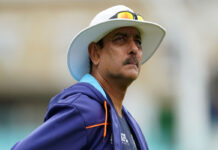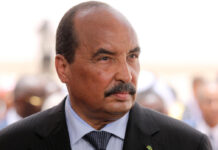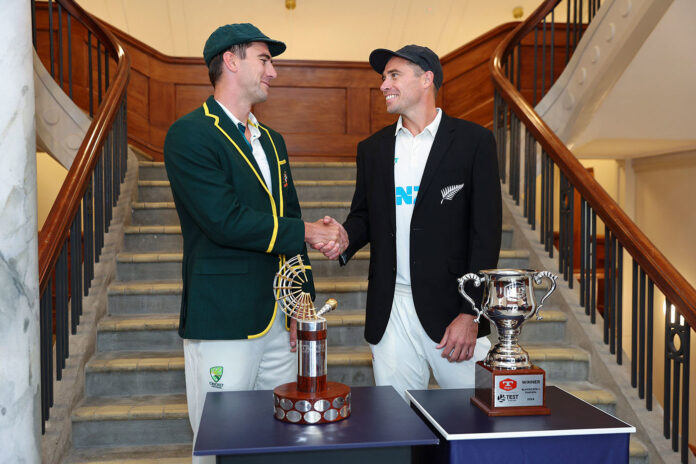Wellington, Feb 28
It’s little wonder anticipation is feverish for Australia’s Test return to New Zealand after eight years with matches in Wellington and Christchurch to be played in front of capacity crowds. Even though they are neighbours, sharing a long history on the field, the two sides don’t play against each other very often in Test cricket. Wellington rain leaves New Zealand waiting to decide on fourth bowler
It underscores the saturation of Tests being played between powerhouses Australia, England and India but, when they do belatedly meet, the Trans-Tasman rivalry has been decidedly one-sided.
Continually overmatched, New Zealand have only beaten Australia once from 29 matches over the last three decades at Test level. But they will finally get a chance to break Australia’s stranglehold in the series-opener at the Basin Reserve starting on Thursday.
There is much more than bragging rights on the line with New Zealand currently leading the World Test Championship, while defending champions Australia are in third position. In likely seam-friendly conditions on a green surface, New Zealand’s potent pace attack will be aiming to exploit an Australia batting order that struggled at times against the hostile quicks of West Indies and Pakistan on tough surfaces during the home summer. This two-match series marks the culmination of a hectic period of Test cricket for Australia, who by the end of it will have played 22 Tests in 15 months before a long break until next summer. It’s been a strong period for Australia across formats, cementing a legacy for their core group of stars, but overseas Test series victories have been rare. Since they crushed New Zealand 2-0 in early 2016, Australia’s sole success was a stirring triumph in Pakistan two years ago. They’ve otherwise lost five series and drawn four in that timeframe. Drawing the Ashes twice was somewhat impressive, and they did push India in 2017 and last year, but this ageing Australia team should feel extra motivated as they near the finishing line of a gruelling run. Australia’s only change during their home Test summer was Cameron Green replacing retired David Warner to cause a reshuffle of the batting order. Shoehorning Green into No.4 illustrated the Australian hierarchy’s determination to get the young allrounder back into the line-up.
Green started nervously against West Indies with a couple of low scores, but looked more assured with 42 in the second innings at the Gabba before Shamar Joseph went berserk. Green was not part of Australia’s T20I series against New Zealand as he prepared for the Tests by playing in the Sheffield Shield and justified that decision with a century for Western Australia against Tasmania.
There will be pressure on Green to cement the No.4 role, but it’s his preferred position while his seam bowling should also prove invaluable on favourable surfaces in New Zealand.
Daryl Mitchell looms as an x-factor for New Zealand having become a significant presence after entering international cricket at the age of 27. He spent some of his formative years living in Perth, which helped shape his aggressive style of play. Mitchell has made an impressive start to his Test career with an average of 53.46 from 21 Tests. He’s never played Tests against Australia and also has yet to taste victory against them after five fruitless white-ball games. Mitchell will return to No.5 having missed the last Test against South Africa in Hamilton and the T20I series against Australia due to a foot injury.
Even though they were shocked by the West Indies in their last Test, Australia will go in unchanged as they stick with their new batting order of Steven Smith at the top of the order and Green at No.4. Despite being tailor-made for the seaming conditions, fringe quicks Scott Boland and Michael Neser will miss out with frontliners Pat Cummins, Mitchell Starc and Josh Hazlewood to play their eighth straight Test together.
Australia 1 Steven Smith, 2 Usman Khawaja, 3 Marnus Labuschagne, 4 Cameron Green, 5 Travis Head, 6 Mitchell Marsh, 7 Alex Carey (wk), 8 Mitchell Starc, 9 Pat Cummins (capt), 10 Nathan Lyon, 11 Josh Hazlewood
New Zealand start a new era after the retirement of firebrand Neil Wagner, who won’t renew his hostile battle with Smith. They played four quicks in their last Test against South Africa, but left-arm spinner Mitchell Santner is likely to be recalled. Scott Kuggeleijn, who has played one Test, is the additional seamer if New Zealand again opt for an all-out pace attack. Opener Devon Conway was ruled out due to an injured thumb sustained during the T20I series against Australia with Will Young his likely replacement, while Henry Nicholls has been called into the squad. Mitchell and batter Rachin Ravindra have overcome injuries, while Kane Williamson also returns after missing the T20I series due to the birth of his third child.
New Zealand (probable) 1 Tom Latham, 2 Will Young, 3 Kane Williamson, 4 Rachin Ravindra, 5 Daryl Mitchell, 6 Tom Blundell (wk), 7 Glenn Phillips, 8 Mitchell Santner/Scott Kuggeleijn, 9 Matt Henry, 10 Tim Southee (capt), 11 William O’Rourke
Pitch and conditions
There is set to be early movement on a grassy surface with plenty of pace and bounce before the pitch flattens out. There has been rain in the lead up to the match, but clear and cool conditions in Wellington are expected over the first four days. Showers are forecast on day five.



























